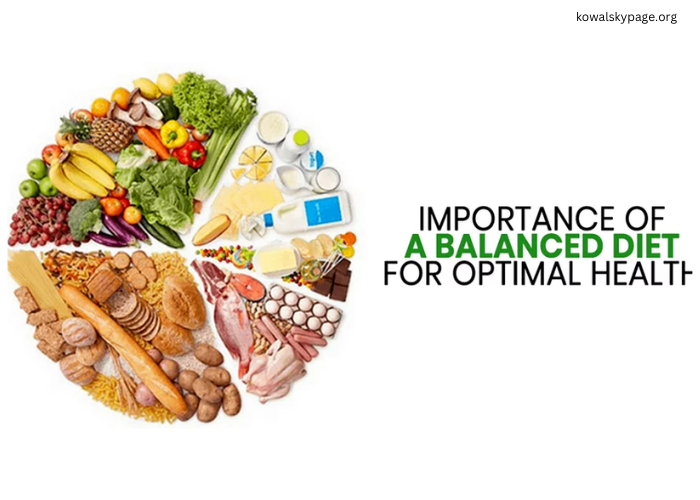In today’s fast-paced world, achieving optimal health can feel like an elusive goal. However, balanced nutrition remains one of the most effective and accessible ways to promote overall well-being. By understanding the principles of balanced nutrition and incorporating them into daily life, individuals can take significant steps toward improved physical, mental, and emotional health.
The Foundations of Balanced Nutrition
Balanced nutrition involves consuming the right proportions of macronutrients—carbohydrates, proteins, and fats—alongside essential vitamins, minerals, and water. Each of these components plays a vital role:
- Carbohydrates: Provide the primary source of energy for the body. Opt for complex carbohydrates like whole grains, fruits, and vegetables over refined sugars.
- Proteins: Support muscle repair, immune function, and enzyme production. Include a mix of plant-based and animal-based proteins such as beans, nuts, fish, and lean meats.
- Fats: Aid in nutrient absorption, brain function, and hormone production. Prioritize healthy fats from sources like avocados, olive oil, and fatty fish.
- Vitamins and Minerals: Regulate countless physiological processes. A varied diet rich in colorful fruits and vegetables ensures adequate intake.
- Water: Essential for digestion, temperature regulation, and toxin elimination. Aim for at least 8 cups daily, adjusting for activity levels and climate.
Benefits of Balanced Nutrition
A well-balanced diet offers numerous health benefits:
- Enhanced Energy Levels: Proper nutrition provides sustained energy throughout the day, reducing fatigue and improving productivity.
- Improved Mental Health: Certain nutrients, like omega-3 fatty acids and B vitamins, support brain health and can alleviate symptoms of anxiety and depression.
- Disease Prevention: A balanced diet reduces the risk of chronic conditions such as heart disease, diabetes, and obesity.
- Stronger Immunity: Nutrient-rich foods bolster the immune system, making the body more resilient against illnesses.
- Healthy Weight Management: Balanced eating habits help maintain a healthy weight without resorting to restrictive diets.
Tips for Achieving Balanced Nutrition
- Plan Your Meals: Preparing meals in advance ensures a consistent intake of nutrients and reduces reliance on processed foods.
- Portion Control: Be mindful of portion sizes to avoid overeating while still meeting nutritional needs.
- Read Labels: Understand food labels to make informed choices and limit added sugars, sodium, and unhealthy fats.
- Stay Consistent: Aim for regular meals and snacks to maintain steady energy levels and prevent extreme hunger.
- Seek Professional Guidance: Consult a registered dietitian or nutritionist to tailor dietary recommendations to your unique needs.
Overcoming Challenges
Modern lifestyles can make balanced eating seem challenging. Busy schedules, budget constraints, and an abundance of processed foods often act as barriers. To overcome these obstacles:
- Opt for simple, nutrient-dense meals that require minimal preparation.
- Shop smart by purchasing seasonal produce and buying in bulk to save money.
- Keep healthy snacks, like nuts and fruits, readily available to curb unhealthy cravings.
Conclusion
Achieving optimal health through balanced nutrition is not about perfection but about making consistent, informed choices that align with your lifestyle and health goals. By embracing a diet rich in whole, nutrient-dense foods and maintaining mindful eating habits, anyone can pave the way toward a healthier, more vibrant life.





